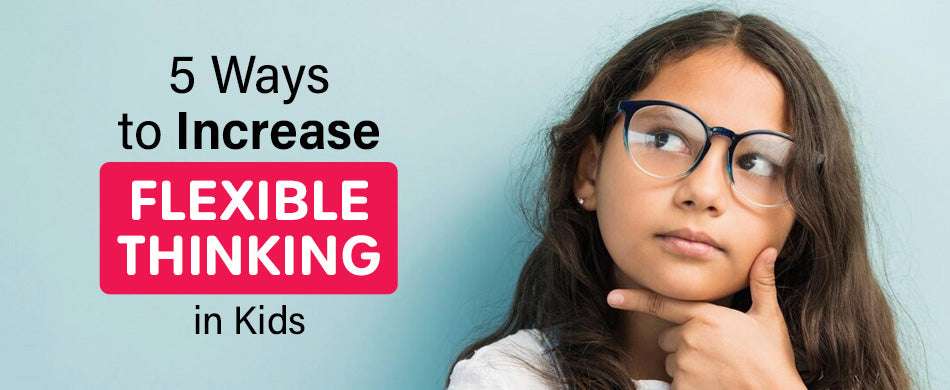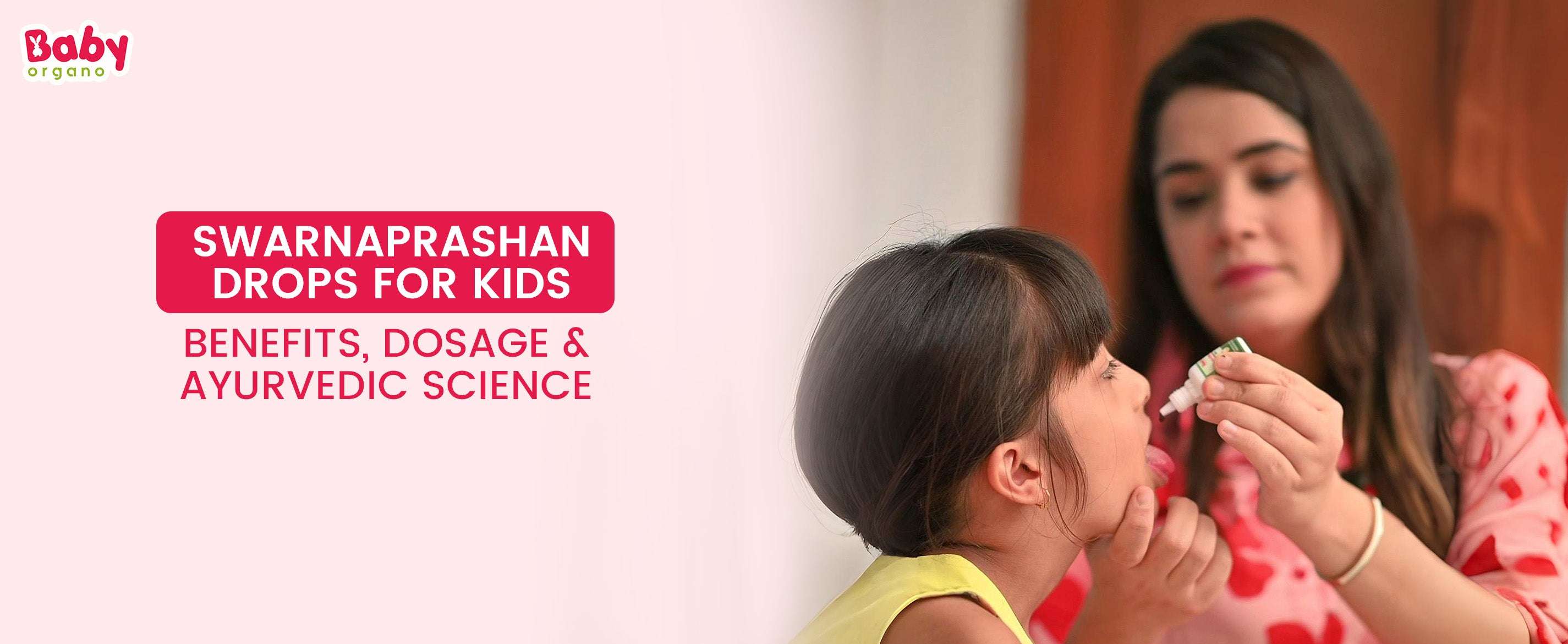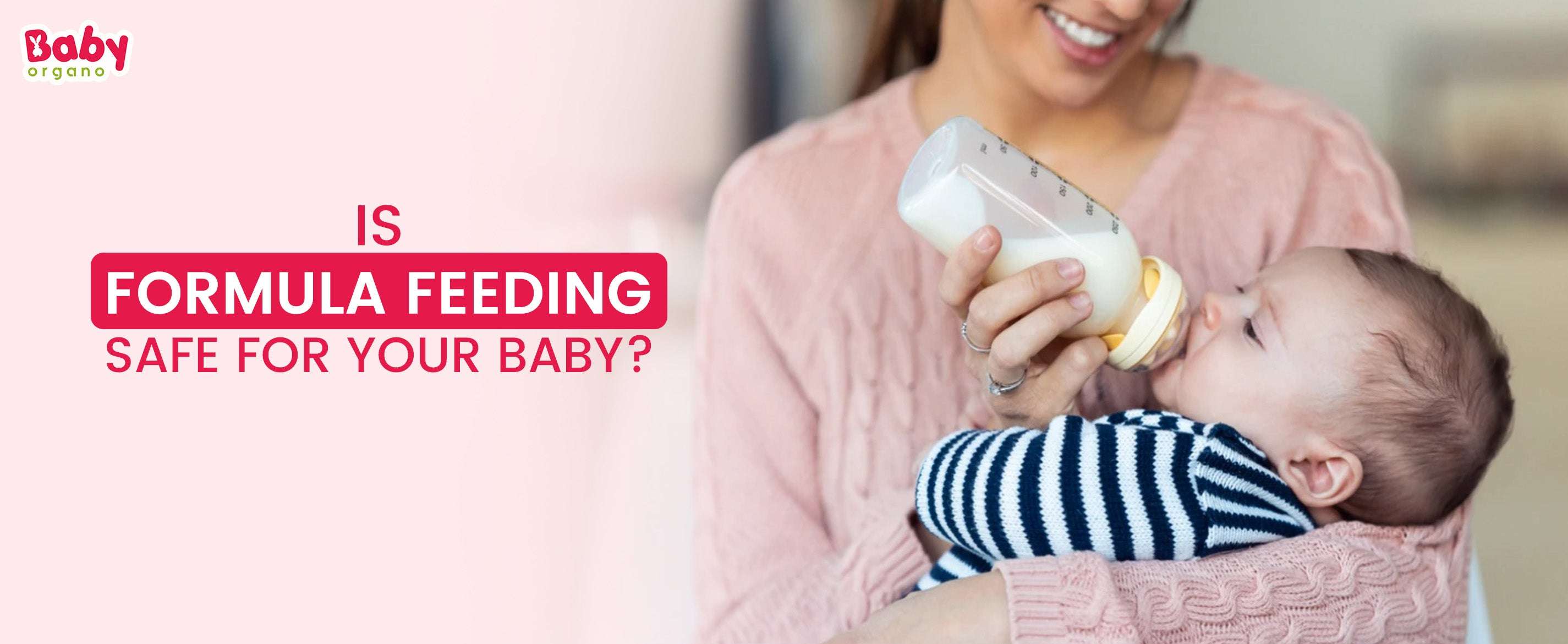5 Ways to Increase Flexible Thinking in Kids
- by Baby Organo

Flexible thinking is a socially crucial cognitive skill that many kids may find hard because they have trouble being strict. Kids might have difficulty learning to be flexible just by watching others do it. As a result, they need to be taught the idea of loose thought.
As kids, a lot of them have trouble with change and being flexible. Unpredictability makes it hard for them to deal with, so they need routines and repeat. However, their inability to think in new ways might make it harder for them to function in many areas of their daily lives, including interacting with others, solving problems, and experiencing new things.
Kids who do not think openly may also be very anxious when things change. For example, if they are used to closing the door permanently, they might get mad when someone else does it. Issues that do not seem important to most of us could become triggers for someone hooked on sameness and used to strictly following the same routine.
For this reason, teaching them how to deal with change and bring it slowly into their lives is essential. This article discusses why flexible thinking is critical and how to develop flexible thinking in kids.
Why Is Flexible Thinking Important for Kids?
Flexible thinking is essential to a child's learning and development in the ever-changing world of schooling and social interactions. This cognitive ability affects a child's adaptation, problem-solving, and resilience beyond academic success.
In this comprehensive guide, we examine why flexible thinking is essential for your child's development.
Learning Environment Adaptability
Flexible thinking helps kids traverse varied learning contexts. One example is math education. Flexible thinking allows children to solve math problems from several angles, boosting creativity and quantitative comprehension.
A strict thinker may need to find alternate ways that could improve comprehension by sticking to prescribed solution processes.
Peer Relations and Social Skills
Flexible thinking affects social and peer interactions beyond academics. This cognitive talent helps kids adjust to shifting social dynamics, handle varied personalities, and collaborate. Considering different perspectives helps with communication, conflict resolution, and developing good interpersonal skills.
Moving Between Activities
Flexible thinking facilitates activity transitions. Children with this cognitive skill can switch tasks quickly and stress-free. This versatility is essential in schools as pupils swap subjects, activities, and locations throughout the day. It supports better time management and organization.
Manage Changing Expectations
Flexible thinking helps kids handle life's uncertainty. This cognitive talent allows a youngster to adapt and respond well to sudden changes in plans, events, or routines. This resilience helps youngsters prepare for the unpredictability of life by fostering confidence and the ability to overcome obstacles.
Getting Past Setbacks
Life brings disappointments, and how kids handle them affects their emotional resilience. Flexible thinking lets them see setbacks as learning opportunities. This talent allows a child to reassess, modify techniques, and tackle the issue with newfound drive after a failure.
Dealing with Unexpected Changes
Flexible thinking shines in unexpected situations. The ability of a youngster to adapt to unanticipated routine or event changes shows mental flexibility. When heavy rains force a Physical Education session indoors, a flexible thinker will find inventive ways to make the most of it, cultivating a positive outlook on problems.
Effects on Language and Cognition
Research suggests that children with lower flexible thinking skills may need help with grammar, pronunciation, and numeracy. These issues can also affect reading. Early nurturing and guidance of a child's flexible thinking abilities are vital for overcoming linguistic and cognitive development challenges.
Approach to Flexible Thinking in Kids: 5 Ways
Children need flexibility in thinking to navigate today's fast-changing world. Adaptability, creative problem-solving, and diversity become increasingly crucial in modern times. Parents assist children in developing cognitive flexibility and resilience by encouraging open-mindedness and resilience.
This article discusses five ways to help your child develop a flexible, uncertain mindset. Encourage curiosity, investigation, and a growth-oriented attitude to equip kids with the cognitive skills to face the unknown. Understanding and implementing these methods can help parents develop adaptable, open-minded kids who can handle modern life. Flexible thinking helps your youngster embrace change and build skills for a changing society.
Encourage adaptability
Accepting life's ups and downs lets you adjust to surprises. Staying calm when life throws you a curveball is essential. This method enhances your health and models good behavior for your child.
Positive thinking and change acceptance are essential. You can share your opinions with your child by communicating openly. Sharing your reactions and problem-solving skills might help kids adapt to changes.
Use "Oops!" to cancel a park visit. Make a plan!" This simple acknowledgment encourages creativity and adaptability.
Remember that perfection is not the goal. Life is unpredictable, and responses are imperfect. Positive thinking and adaptability to unforeseen events lead to great learning. From these scenarios, your youngster can learn resilience, flexibility, and excitement in alternate ideas.
Go with the flow to handle life's surprises and teach your child to accept change with grace and happiness. Use these opportunities to grow and encourage your child to do so, building a resilient and adaptable mindset for life's curveballs.
Your child should eat well
Your child's development and flexibility require a balanced, nutrient-rich diet. Proper food can help you grow a healthy, adaptable child.
First, provide a range of nutritious foods. Diversify your fruits, veggies, grains, lean proteins, and dairy or dairy alternatives. This delivers brain-growth vitamins, minerals, and other nutrients.
Encourage breakfast - A good breakfast fuels and nourishes the brain. A balanced meal includes oats, eggs, yogurt, and fruits.
Promote balanced meals - Mix macronutrients (carbohydrates, proteins, and fats) to boost energy. Reduce processed and sugary foods, which induce energy spikes and crashes that impact mood and cognition.
Stay hydrated - Water sustains health and cognition. Encourage your child to drink water, especially during exercise or warm weather.
Cut back on sugary drinks and desserts - Sugar can hinder concentration, although occasional treats are fine. Use fruit or yogurt to satisfy their sweet tooth.
Plan and cook meals with your child - This encourages healthy eating and accountability. Teaching kids to like varied flavors and textures can inspire lifelong healthy eating habits.
Consider your child's diet - Consult a doctor or nutritionist to personalize your child's diet.
Your child's flexibility and health depend on a balanced diet. Childhood healthy eating habits set the stage for lifetime cognitive and physical development.
Read More – Here are Quick and Healthy Recipes for Kids
Spend time outdoors
Outdoor time benefits youngsters primarily. Nature is unique and dynamic, relaxing and stimulating young minds. Nature's ever-changing sights, sounds, sensations, and fragrances contrast indoors.
Children can exercise cognitive flexibility in the unpredictability of the outdoors. Diversity in nature helps kids focus, adapt, and navigate—outdoor exploration and discovery contrast with indoor confinement.
Young children enjoy nature's pleasures, from rustling leaves and bird sounds to wind on their skin. These sensory experiences enhance observation and environmental awareness.
Outdoor activities encourage exercise and a healthy lifestyle. Rock climbing, field jogging, and uneven-ground walking increase motor skills, coordination, and balance. The outdoors is a dynamic playground for kids' physical development.
Outdoors provide a unique and valuable environment for youngsters. Exercise, sensory engagement, and unpredictability increase creativity, well-being, and cognitive flexibility. Kids learn about the world and build lasting skills by spending time outdoors.
Read more – Best Afterschool Activities for Your Kids
Play games with different rules
Help your child create and adapt board or card games to practice creativity and critical thinking. Children enjoy fun and develop problem-solving by making up or altering rules.
Children feel independent when designing game mechanics. This inspires them to establish new rules that challenge standards. Trial and error in game design helps youngsters learn from their mistakes and improve their ideas, building resilience and flexibility.
Kids naturally learn flexible thinking with this imaginative exercise. Changing rules, accommodating others, and exploring alternatives are valuable. This adaptability may affect how they manage real-world issues.
Create your own game to feel more engaged and invested. It teaches responsibility since youngsters must consider their teammates' pleasure and involvement. Communication and negotiation improve social skills and teamwork in collaborative problem-solving.
Creating or developing board and card games is a whole learning experience. Creativity, critical thinking, adaptation, and teamwork make learning many skills pleasant and efficient for kids.
Try new things
Innovative child activities foster cognitive flexibility and progress. Try a new activity, food, or music type to learn and discover.
Playing a new sport together enhances coordination, collaboration, and health. Introducing fresh foods and cultures to your child expands their palate and worldview. Discovering new music can spark creativity and emotion.
Your child will remember these times and be open to new things. The willingness to explore new things promotes cognitive flexibility, curiosity, and adaptability. Shared experiences strengthen parent-child bonds and offer life skills to help your child grow.
Cognitive flexibility keeps kids happy while facing life's problems. A child's development, academic performance, and social relationships in modern society depend on flexible thinking.
Cognitive flexibility helps kids overcome challenges without panic, fear, or bewilderment. Flexible thinking allows kids to succeed in school and collaborate in a changing world. Children's well-being and performance in a changing world depend on cognitive flexibility.
Key Takeaways
Children need flexible thinking to develop cognitively and adapt to change. Parents and educators can boost a child's flexibility via creative, problem-solving, and open-minded activities. Brainstorming, riddles, and imaginative play help kids consider various options. Motivate growth and value effort above outcomes to foster flexibility.
Different cultures and experiences enhance youngsters' perspectives, making them more flexible. Kids learn to think critically, accept ambiguity, and overcome barriers using flexible thinking.
- Posted in:
- Parenting tips





